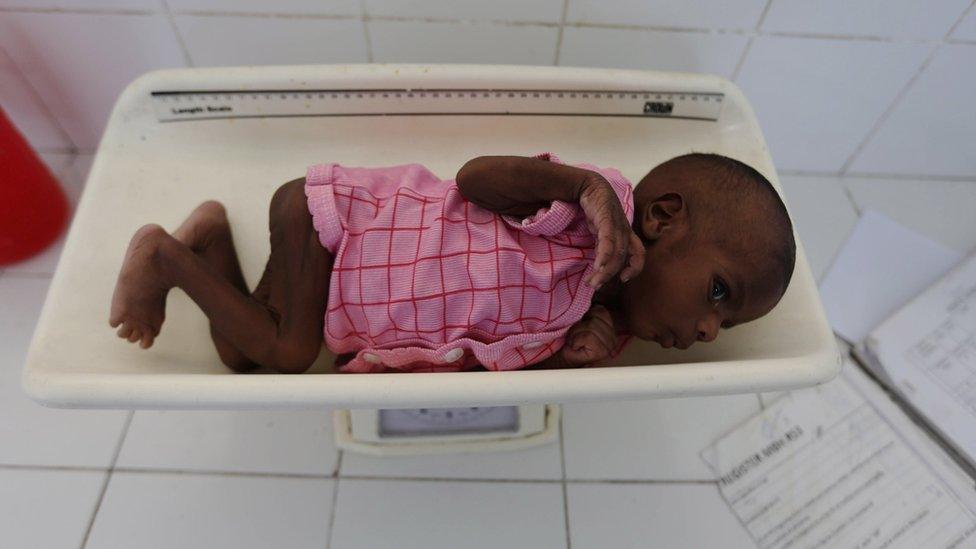Africa health: Rotavirus vaccine could save 500,000 children a year
- Published

A new vaccine could save half a million children a year. Pictured: A Somali child being treated in a ward dedicated to diarrhoea patients
Hopes are growing for a new, inexpensive, heat-proof vaccine to protect against a disease which kills 1,300 children a day following a successful trial in Niger.
The vaccine was found to be almost 67% effective in preventing gastroenteritis caused by rotavirus, the most common cause of severe diarrheal disease in the world.
The two existing vaccines require refrigeration and can be costly.
The new drug would be half the price.
Medecins Sans Frontieres medical director Micaela Serafini described the vaccine, called BRV-PV, as "a game changer".
"It's a vaccine that fits much more with what we believe are the needs in Africa," she told the Thomson Reuters Foundation.
More than 500,000 children die each year from dehydration and complications of rotavirus, particularly in sub-Saharan Africa, according to the World Health Organization.
But the current vaccines are difficult to transport and administer as they must be refrigerated at all times. A vaccine which does not need to be refrigerated would be able to reach children in even the most remote areas.
"This trial brings a vaccine which is adapted to African settings to those who need it most," said Sheila Isanaka, assistant professor of nutrition at Harvard University and co-author of the study in the New England Journal of Medicine.
"When the vaccine becomes widely available in Africa, it will help protect millions of the most vulnerable children."
BRV-PV, which is manufactured in India and licensed there, needs final World Health Organisation approval before it can be used worldwide.
- Published8 March 2017
- Published5 January 2017
- Published30 November 2016